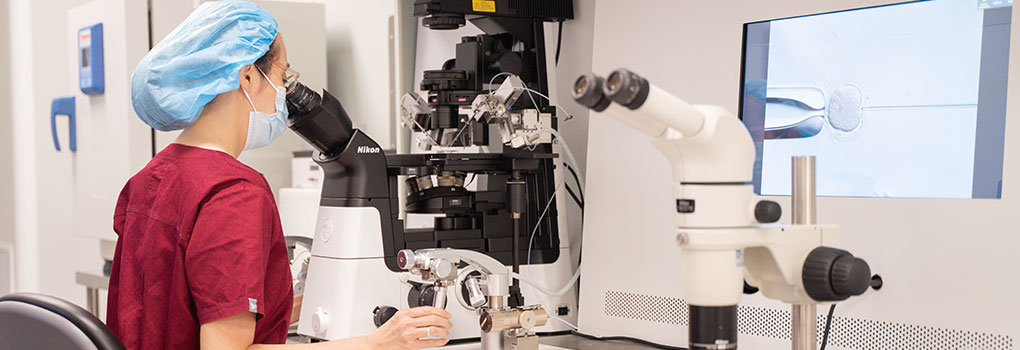Hits: 2254

In Vitro Fertilization / Intracytoplasmic Sperm Injection (IVF / ICSI)
IVF (In vitro fertilization) and ICSI (Intracytoplasmic sperm injection) are common assisted reproductive technology (ART) used to treat infertility. They are recommended for couples who have been unsuccessful in conceiving through other methods.
IVF: retrieves eggs from the ovaries and fertilizes them with sperm in a laboratory dish.
ICSI: retrieves eggs from the ovaries and directly injects a single sperm into an egg.
Is There an Age Limit for IVF?
There is no specific age limit, but age can affect IVF/ICSI chances of success due to declining egg quality and reserve. The optimal age is typically under 35, but women over 35 can still be considered depending on individual conditions.
Success Rates
We have a success rate of >50% for IVF/ICSI procedures, which varies depending on age and other underlying health conditions. For patients who opt for Preimplantation Genetic Testing for Aneuploidies (PGT-A), the success rate may increase to 70%.
Additional Techniques:
You can enhance your fertility treatment success with these additional techniques:
- Laser Assisted Hatching (LAH) to improve implantation success rates.
LAH involves creating a small opening in the outer layer of the embryo to improve its chances of implantation in the uterus - Endometrial Receptivity Test to determine the optimal time for embryo transfer.
Endometrial receptivity test determines the patient’s window of implantation, increasing the chances of IVF treatment success
- Preimplantation Genetic Testing for Aneuploidies (PGT-A) to minimize the chance of having a chromosomally abnormal child.
PGT-A can be useful for patients who have a high risk of passing on a genetic disorder to their child, or for patients who have experienced recurrent pregnancy loss
- Embryo Freezing to store embryos for future use.
Embryos that are not transferred during an IVF cycle can be frozen and stored for future use. This can be a useful option for patients who wish to delay pregnancy, have leftover embryos from a previous cycle, or have a medical condition that may affect their fertility in the future

